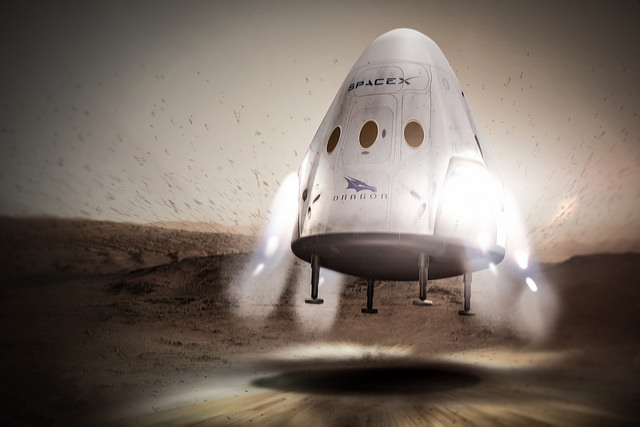Solar Impulse 2 coming in to land after the record-breaking Japan-Hawaii trip | Photo: © Solar Impulse, Revillard, Rezo.ch
Solar Impulse Makes It
Solar Impulse 2 completed the seventeenth and final leg of its zero-fuel circumnavigation of the globe this week, landing back in Abu Dhabi 2 days and 37 minutes after taking off from Cairo, and 505 days after it left AbuDhabi back in March 2015. Of course the whole trip didn’t involve 505 days of flying time — the number of days in the air was only 21, but since the lightweight aircraft requires particularly nice weather conditions, and since it sustained some battery damage on the now world-record-holding 117 hour flight from Japan to Hawaii, it was forced to spend the vast majority of its year and a half trip on the ground. That said, this is the first time a piloted, solar-powered aircraft has made it around the world in any amount of time, and the whole team should be rightfully proud of themselves. Given how much energy it takes to fly (and how little you get from solar panels) it’s going to be a long time before we see a shorter trip. Solar Impulse has more.
The Great White(?) Wall
A new movie is coming out in February of next year called The Great Wall. It stars Matt Damon, Andy Lau, Willem Defoe, Lùhán, Pedro Pascal, and Jǐng Tián (among others). By all signs, it’s a Hollywood blockbuster that should have suffered terribly from the “whitewashing” trend that seems endemic in the industry: it’s a Chinese setting, about a fantasy version of Chinese history, and its protagonist is played by (wait for it: yep) a white actor. These things remain true. But it looks as though they got half way through it and realized “oh god, we’ve made a terrible mistake,” and pulled in Zhāng Yìmóu, who you might know as the director of the beautiful House of Flying Daggers or the deeply unsettling Raise the Red Lantern, to (as io9 puts it) “try and bring an authentic Chinese approach to the movie and its setting.” Now, I’m not saying it’s been fixed: if you watch the trailer above and you’ll see how central Damon’s character seems to be, despite literally everything else being Chinese. But I have hopes that it’s just the cut of the trailer, and that Zhāng’s influence will be making the film — which, being about building the Great Wall to stop an invasion of literal monsters — just as absurd and wonderful as it sounds. Here’s hoping, anyway.
SpaceX Updates

Checking back in this week with SpaceX, there are three bits of news worth mentioning. First off, NASA has spelled out more specifically the help it’ll be lending to the private rocket company’s “Red Dragon” Mars mission, set to launch in 2018. NASA will be contributing their expertise in selecting a landing site and sterilizing the craft, as well as the use of the Deep Space Network dishes to communicate with the lander as it heads toward (and hopefully lands on) Mars. All told, it’ll be roughly $30 million in labour and resources over four years, about ten percent of SpaceX’s expected investment in the mission. Red Dragon is an EDL mission — Entry, Descent, and Landing — that will test SpaceX ability to use retro-propulsion to slow and land in the red planet’s very thin atmosphere. Red Dragon is expected to be eight to ten tons at landing, and if successful, will be the heaviest thing ever landed on Mars. Curiosity, by comparison, is roughly one ton.
Second, NASA has officially ordered its second crewed Dragon mission from SpaceX. The first hasn’t flown yet, and of course the unmanned test flight of the crew Dragon won’t go up until the end of next year, but it’s just a nice reminder that things are progressing once again toward American astronauts being able to get to the ISS without buying extortionately-priced trips on a Soyuz.
Finally, SpaceX has test-fired the returned first-stage from the JCSAT mission back in May, as a part of the ongoing plan to re-fly a Falcon 9 first-stage. The test of the strapped-down rocket saw its nine Merlin engines fire for two and a half minutes, but this particular one won’t go back to space. It was deemed a reference vehicle after it came back from its mission just a little too hot for comfort. The company hopes to start reusing the growing number of returned first stages soon.
ICYMI
Here’s what we got up to here this week, in case you missed any of it.
- On Monday, John Barrowman won the internet
- On Tuesday, I wrote about why we might not be teaching morals in schools
- On Wednesday, I gave a little defense of Ray Kurzweil
- On Thursday, I interviewed primatologist Alicia Rich about her crowdfunding research campaign, and
- On Friday, Elle wrote about the strange existence of anti-abortion Democrats
If you didn’t see any of them, go check them out (and like and share!)
Best of the Rest
As usual, there’s so much more to report than I can handle. So here it is, your weekly linkspam:
- Wind energy is now cheaper than nuclear in some parts of Europe
- Michael Crichton is still releasing books, nearly a decade after his death
- Colony Collapse Disorder probably won’t wipe out all the bees anymore
- You can still see amazing live feeds of ocean floor exploration
- “Lesbians are hot” is apparently a good selling point for Canadian tar sands oil
- There’s a star that “flickers” because its being blasted by an immense particle accelerator
- Jupiter doesn’t technically orbit the Sun
- Our attention spans aren’t actually getting shorter,
- NASA’s finally digitizing the Viking mission’s data, and
- Soylent is GMOs (not people)
That’s all for today. Thanks for reading! I only get paid in my own (and your) enthusiasm, so please like This Week In Tomorrow on Facebook, follow me on Twitter @TWITomorrow, and tell your friends about the site!
If you like our posts and want to support our site, please share it with others, on Facebook, Twitter, Reddit — anywhere you think people might want to read what we’ve written. Thanks so much for reading, and have a great week.
***
Richard Ford Burley is a human, writer, and doctoral candidate at Boston College, as well as an editor at Ledger, the first academic journal devoted to Bitcoin and other cryptocurrencies. In his spare time he writes about science, skepticism, feminism, and futurism here at This Week In Tomorrow.

